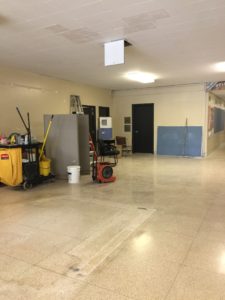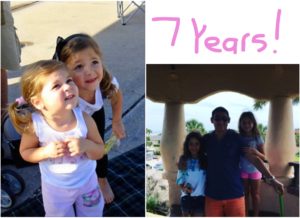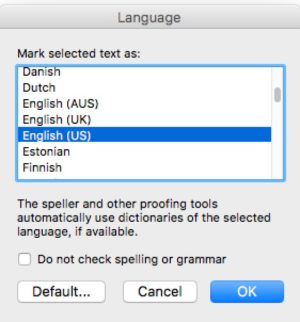We are, but 19 days from the return of our amazing teachers, followed soon thereafter by our incredible families and children! Can you believe it? Me neither!
Readers of my blog know that any blog post that comes labeled “The Transparency Files” is likely geared towards a primary stakeholder group and that it will share information, ideas, news, issues, etc., that I assume are new, newsworthy, important and potentially worthy of conversation. If you search for prior “Transparency Files” you’ll find posts about homework policy, scheduling, behavior management, evaluations, standardized test scores, new programs, etc. You’ll also find introductions of faculty and staff.
But before I share for the first time the full make up of the Ottawa Jewish Community School’s 2017-2018 Faculty & Staff, I want to…
…talk very briefly about “transparency” as a core value.
…introduce an exciting Core and Extended Hebrew Pilot for Grades 4 & 5.
…introduce our new teachers.
This much would normally occur over 2-3 posts, but because I have a sneaking suspicion that OJCS parents will be unusually interested in this post, I am going to pack it full and keep you (them) in suspense.
Transparency as a Core Value
As I prepare for the return of teachers and students and the full opening of my third headship, I am more sure than ever that our success as a school will be directly related to how deeply embedded “transparency” becomes as a core cultural value. When I say “transparency” I don’t mean to imply a lack of discretion or oversharing; when I say “transparency” I mean to imply honesty, candor, open and healthy communication, trust, vulnerability and faith. Transparency requires relationship and demands respect. Transparency raises the bar. Transparency tears down walls and uproots silos. Transparency lives in the classroom and in the boardroom. Transparency forces clarity. Transparency means you don’t only get to share the good news. Transparency fosters humility.
I take transparency seriously because it guarantees accountability. I believe in transparency because it engenders relationship-building. I have seen the power of transparency transform and the lack of transparency destroy. I cannot guarantee that all my decisions or ideas will be well-liked or even the right ones. (I can actually guarantee that they won’t be.) I can guarantee to operate in a spirit of transparency and I invite you to join me on the journey.
Hebrew Pilot Program for Grades 4-5
Speaking of transparency…
I must admit there is a bit of chicken-egg to this one, to be honest, because it was really the next item on the list (new teachers) that allowed us the opportunity to launch this pilot. Not that we wouldn’t have wanted to have done it anyway, but (again chicken-egg) it probably should have come as a more organic conversation about the role of Hebrew in our school and a larger conversation about revisiting our Jewish mission/vision – both incredibly important conversations that we will (transparently) begin this year. But when it dawned on us (and by “us” I mean Keren Gordon, our amazing Vice Principal and schedule-whisperer) that we might have a chance to pilot an enhancement to our Hebrew program…well…we couldn’t resist.
As OJCS families know (hopefully!), our French program goes deeper beginning in Grade Four with our “Core” students continuing to have a differentiated French language period and our “Extended” students adding on a second subject – Social Studies – with French as the language of instruction, thus providing an “extended” exposure to French. [Please note that I am purposely not launching the significant conversation-to-come about French immersion in this blog post, but that I am not ignorant of its pressing nature.] When it comes to our Hebrew program, however, we use the same “Core” and “Extended” terms, but with different meanings (I presume not only to confuse me). In Hebrew we have been using “core” and “extended” only to describe level, not contact time. That’s where the pilot comes in.
With extraordinary gratitude to two of our master Hebrew Teachers, Ada Aizenberg and Rachel Kugler – both of whom gracefully and enthusiastically accepted a rather late-in-the-game adjustment to their teaching portfolios to take this pilot on – OJCS “Extended” Hebrew students in Grades 4-5 will, like “Extended” French, have one period of high-level Hebrew instruction and a second subject – Judaics – with Hebrew as the language of instruction, thus providing an “extended” exposure to Hebrew.
Does this solve Hebrew fluency at OJCS? Nope!
Does this clarify the Jewish mission/vision of OJCS? Nope!
Will there be unintended consequences – both good and bad? Yup!
This is a pilot – an opportunity to try something new and to learn from it. We absolutely think it is a step in the right direction to enhance Hebrew fluency at OJCS. We absolutely think it will contribute to the larger conversations coming. We are absolutely thrilled about it and hope you are too. And if you are an OJCS parent of a child going into Grades 4-5 and have questions, concerns, feedback, etc., I look forward to those conversations most of all.
Introducing New Faculty
As of this writing, we have three new teachers joining our incredible faculty of returning teachers and I wanted to share a little bit about them so you can be as excited as we are.
Lianna Krantzberg will be joining us as our Kindergarten Educational Assistant. Lianna has her B.A. and B.Ed. and may be a familiar face to OJCS families from her time here during her student placement or her work at Camp B’nai Brith Ottawa. Lianna brings new energy and new ideas and we are thrilled she has chosen to launch her career at OJCS.
Shira Waldman will be joining us as our Kindergarten Judaics, Grade Four Core Hebrew, Judaics & Art, and Middle School Girls PE teacher. Shira has her B.A. and B.Ed. and may be a familiar face to OJCS families from her time working at Ganon Preschool. Shira brings extraordinary warmth, range and creativity and we look forward to what she will add to our school.
Melissa Anders will be joining us as our Grade Six General Studies Teacher. Melissa has her B.Ed. and an M.A. in Educational Technology and will soon be a familiar face to OJCS families. Melissa has significant experience teaching in Jewish day schools throughout Canada. Melissa brings a remarkable set of skills and we look forward to her contributions to our growth as a 21st century learning organization.
OK…I think that’s quite sufficient. I don’t typically do a 1,000-word preamble, but I hope you found it informational and useful. I have no more caveats or contextualizations. I simply have gratitude to be working with this gifted and loving group of teachers in the sacred work of educating our children. Without further adieu…
The 2017-2018 OJCS Faculty & Staff
Kindergarten
- Ann-Lynn Rapoport – General Studies
- Shira Waldman – Hebrew and Judaics
- Marlène Colbourne – French Studies and Physical Education
- Bethany Goldstein – Music
- Lianna Krantzberg – Kindergarten Educational Assistant
Grade One
- Ann-Lynn Rapoport – General Studies
- Ada Aidenberg – Hebrew and Judaics
- Marlène Colbourne – French Studies, Physical Education and Art
- Bethany Goldstein – Music
Grade Two
- Janet Darwish – General Studies
- Bethany Goldstein – Hebrew, Judaic Studies, Art and Music
- Marlène Colbourne – French Studies and Art
- Linda Signer – Science and Physical Education
Grade Three
- Julie Bennett – General Studies
- Rachel Kugler – Hebrew, Judaic Studies and Art
- Aaron Polowin – French Studies
- Brian Kom – Physical Education
- Bethany Goldstein – Music
Grade Four
- Chelsea Cleveland – General Studies
- Shira Waldman – Core Hebrew, Core Judaics and Art
- Ada Aizenberg – Extended Hebrew and Extended Judaics
- Stacy Sargeant –Core French
- Aaron Polowin – Extended French and Études Sociales
- Brian Kom – Physical Education
- Bethany Goldstein – Music
Grade Five
- Deanna Bertrend – General Studies
- Ruth Lebovich – Core Hebrew
- Rabbi David Rotenberg – Core Judaic Studies
- Rachel Kugler – Extended Hebrew and Extended Judaics
- Aaron Polowin – Core French and Physical Education
- Stéphane Cinanni – Extended French and Études Sociales
- Ruth Lebovich – Art
- Josh Ray – Music
Grade Six
- Melissa Anders – General Studies
- Noga Reiss – Core Hebrew
- Ruthie Lebovich – Extended Hebrew and Art
- Rabbi David Rotenberg – Judaics
- Aaron Polowin – Core French
- Stéphane Cinanni – Extended French and Études Sociales
- Stacy Sargeant – Leadership Program
- Shira Waldman – Girls’ Physical Education
- Josh Ray – Boys’ Physical Education and Music
Grade 7
- Deanna Bertrend – English and Social Studies
- Josh Ray – Math, Science, Boys’ Physical Education and Music
- Stacy Sargeant – Core French
- Stéphane Cinanni – Extended French and Études Sociales
- Noga Reiss – Core Hebrew
- Ruth Lebovich – Extended Hebrew and Art
- Rabbi David Rotenberg – Judaics
- Shira Waldman – Girls Physical Education
Grade 8
- Stacy Sargeant – English, Core French and Social Studies
- Josh Ray – Math, Science, Boys’ Physical Education and Music
- Ruth Lebovich – Core Hebrew and Art
- Noga Reiss – Extended Hebrew
- Rabbi David Rotenberg – Judaics
- Stéphane Cinanni – Extended French and Études Sociales
- Shira Waldman – Girls’ Physical Education
Administration
- Ellie Kamil – Executive Assistant to the Head of School
- Deanna Bertrend – Student Life Facilitator
- Stacy Sargeant – Special Education Advisor
- Rabbi Howard Finkelstein – Dean of Judaic Studies
- Jennifer Greenberg – Director of Recruitment
- Keren Gordon – Vice-Principal
- Dr. Jon Mitzmacher – Head of School
Here’s a super-secret sneak peak at our summer preparations for those of you who had the stamina to scroll…

See you soon!




 sense of what a chapter that long in a life truly means. We’ve all aged, but our girls have definitely aged in a much more fun way than their parents. Professionally, I have had the unique (at least in my profession) opportunity to share farewells from each of the three amazing professional opportunities that occupied much of my time while living in Jacksonville. Our journey from Las Vegas to Jacksonville was to assume the headship of the
sense of what a chapter that long in a life truly means. We’ve all aged, but our girls have definitely aged in a much more fun way than their parents. Professionally, I have had the unique (at least in my profession) opportunity to share farewells from each of the three amazing professional opportunities that occupied much of my time while living in Jacksonville. Our journey from Las Vegas to Jacksonville was to assume the headship of the 
 Since
Since 


 I’ll have much more to say in the weeks and months ahead about the work, the school, and the move. We are neck-deep in emigration law and relocation logistics. I appreciate all the unintentional political jokes moving to Canada provides at this unique moment in time. I know it will be cold.
I’ll have much more to say in the weeks and months ahead about the work, the school, and the move. We are neck-deep in emigration law and relocation logistics. I appreciate all the unintentional political jokes moving to Canada provides at this unique moment in time. I know it will be cold.

 Now one can argue that only those who already thought innovation was important would fill out a survey about innovation…but still…that’s a lot of Jewish day schools who think innovation is very or extremely important.
Now one can argue that only those who already thought innovation was important would fill out a survey about innovation…but still…that’s a lot of Jewish day schools who think innovation is very or extremely important.




